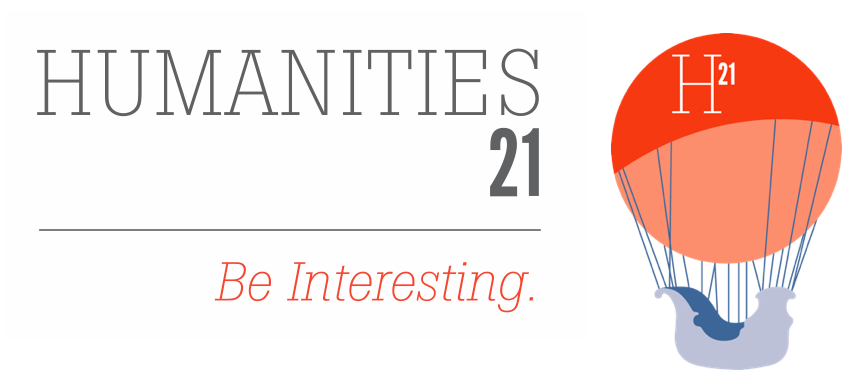In Not for Profit: Why Democracy Needs the Humanities, American philosopher Martha C Nussbaum laments that while the humanities are vital for a functioning democratic society, humanities education around the world is fighting for its existence. Nussbaum also points to several notable failures including a NASA space shuttle launch, and the collapses of Enron and WorldCom., that can be attributed to the absence of the type of critical thinking a humanities education provides.
In Good to Great, a study that examined organisations with extraordinary market results over an extended period of time, American author and consultant Jim Collins found that successful companies benefited from diverse management teams whose different perspectives generated innovation through conflict and creativity, although this had to be accompanied by certain interpersonal skills, notably empathy, so as to ensure constructive discussion and resolution.
Empathy is the glue that holds successful teams together and it can be developed through the study of history, literature and philosophy. Alain de Botton, founder of “The School of Life”, argues that literature is “the very best reality simulator”, because books allow us to experience life as others do, but in a shorter amount of time. Not only does this teach us about others, it teaches us about ourselves so that we can empathise with other points of view and be less driven by our own emotions.
Business savvy employers actively recruit people with a liberal arts education background to accommodate a fast-changing workplace. As job requirements alter and the future becomes more challenging to predict, companies are needing fewer staff for repetitive tasks that can increasingly be done by machines, and more people with the flexibility to learn new skills quickly, respond thoughtfully to uncertainty, make logical and clear arguments and approach new challenges creatively. Former Prime Minister Paul Keating said in a recent interview that we should be “modifying our education system to allow young people to swim their way more confidently in the much more horizontal and collaborative world that the digital economy facilitates.”(Weekend Australian, 26/10/2019)
There is considerable evidence that the critical thinking, empathy and flexibility that are developed by a humanities education can underpin very successful careers. CEOs of some of the world’s leading companies studied the humanities at university, including Harold Schultz (Starbucks – speech communication) Michael Eisner (Disney - English), Richard Plepler (HBO - government) Carly Fiorina (HP- philosophy and medieval history), John Mackey (Whole Foods – philosophy and religion), Susan Wojcicki (YouTube – history and literature) and Alexa Hirschfeld (Paperless Post - classics). Stuart Butterfield, founder of Flickr, Slack and several other technology start-ups, has a Masters degree in philosophy, as does Reid Hoffman, co-founder of LinkedIn.
Closer to home, Westpac’s Gail Kelly taught Latin before she went into banking. In its monthly newsletter, Humanities21 features an Arts@Work section that explores how the humanities have helped people get ahead in a diverse range of occupations, ranging from a management consultant with a degree in music from the Queensland Conservatorium to Telstra’s head of government relations, sustainability and corporate responsibility, who attributes his career to his original arts degree and, later in life, further study in ethics.
Some companies encourage their staff to take advantage of humanities based public lecture series offered by universities, state libraries or The School of Life. The Cranlana Centre of Ethical Leadership in Melbourne provides an intense immersion in philosophy for senior executives. Other organisations bring the academics to their premises. Humanities21 for example, has a catalogue of over 60 experts in subjects ranging from ancient history through to literature, philosophy and art to international politics, who present lectures to a range of companies. Some corporations simply view these lunchtime lectures as an interesting staff benefit; others use the talks to generate creative thinking, and for some organisations, selected talks may focus on a specific corporate priority such as leadership or gender balance. One management consultant compared a series of talks to “a theme park full of unexpected thrills”, whilst a solicitor said that a talk on the French Revolution gave him “great insight into the correlations between historic events and current corporate life”.
Australia, more than many other developed countries, has tended to underestimate the value the humanities can bring to the workplace. Although there are indeed, certain corporations celebrating the value of the humanities, in their recruitment practices, infrastructure development, corporate policies and professional development, it is clear our country’s most successful organisations in the future are likely to be those who have done most to engage with the humanities, in all their manifestations.
©Jonathan Wedgwood
Jonathan Wedgwood is an intern at Humanities 21 and is currently undertaking an Executive Masters of Arts which includes a minor thesis focusing on the arts, ethics and AI, at the University of Melbourne. Jonathan has a special interest in the power of education, particularly in the areas of the arts and humanities.


